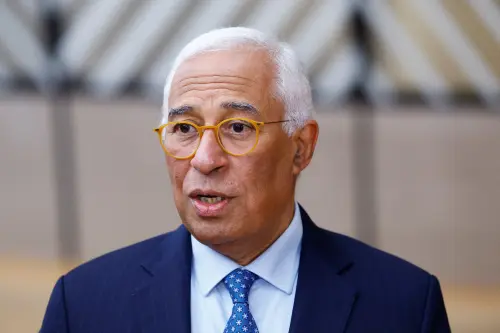European Union leaders will convene for an extraordinary summit on March 6 to address additional support for Ukraine, European security guarantees, and requirements, as confirmed by EU officials on Sunday.
Antonio Costa, the chairman of EU summits, underscored the significance of the current situation by stating, "We are facing a pivotal moment for Ukraine and European security. Through discussions with European leaders, I have witnessed a shared dedication to addressing these challenges collectively at the EU level: bolstering European Defense and actively contributing to peace within our continent, as well as ensuring the long-term security of Ukraine."
The summit coincides with U.S. President Donald Trump's ongoing negotiations with Russia regarding the conflict in Ukraine, excluding Ukraine and the European Union from the talks.
The Trump administration has emphasized a shift in focus towards China over Russia, signaling that European nations should prioritize their own defense efforts rather than relying on Washington.
According to a NATO agreement, EU member states within the alliance are required to allocate 2% of their GDP towards defense annually; however, several countries, including major players like Germany, Italy, and Spain, continue to spend below this target.
The European Commission estimates that the EU necessitates 500 billion euros in defense investments over the next decade, with EU leaders set to deliberate on financial sourcing strategies. Joint borrowing is deemed unlikely, with attention likely shifting towards optimizing the utilization of existing EU funds for military purposes and relaxing national expenditure regulations within the EU framework.
Discussions are underway concerning the potential allocation of around 90 billion euros in loans and grants from the EU's post-pandemic recovery fund for defense purposes, which may remain unspent until the 2026 deadline.
Additionally, considerations involve leveraging EU cohesion funds, designed to harmonize living standards across member states, for military-related ventures.
There is also a proposal to exempt all defense investments from EU fiscal constraints, preventing governments from facing penalties when initiating extensive defense projects.
An EU diplomat highlighted the objective of obtaining a comprehensive overview to contribute to the defense white paper, due shortly, mentioning that various avenues, including recovery funds, cohesion funds, and spending regulations, are under consideration. Joint borrowing appears unfeasible given the current stance of key EU members like Germany, the Netherlands, Sweden, and possibly Austria.
